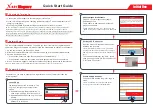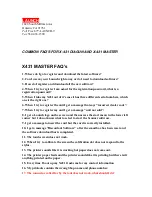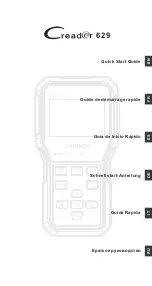
24
Tray
To prevent tipping and
resulting injury:
• Do not use the tray as a restraint
or body support.
• Directly supervise client’s use of
the tray.
• Do not place more than 10 lb. (4½ kg)
on tray.
Attaching
The tray attaches to the Pacer with a clamp
(C) (see page 11 for attachment details).
Adjustments
(see fi gures 24a and 24b)
To reposition tray:
• Loosen knob (A), and swing tray to
desired position, then tighten knob.
To adjust angle of tray:
• Loosen knob (B).
• Change the tilt angle of the tray.
• Rotate the tray from side to side.
To adjust the height of the tray:
• Press button on front of clamp (C).
• Slide post to desired height.
• Release button and push tray
up/down to engage post.
To remove insert (D):
• Push fi ngers up through holes in tray (G).
• Re-install insert (D) by placing tabs (E)
in slots (F) and pressing down on front
edge of insert until it snaps in place.
Figure 24a
Figure 24b
D
D
WARNING
A
A
B
B
C
C
G
G
F
F
E
E









































